by catholicherald.co.uk — Diane Montagna — New details about Pope Emeritus Benedict XVI’s condition have emerged following Pope Francis’s request yesterday for prayers for the former pontiff. News of Benedict’s declining health was revealed on Wednesday, at the end of the usual general audience, when Pope Francis asked the faithful assembled in the Vatican’s Paul […]
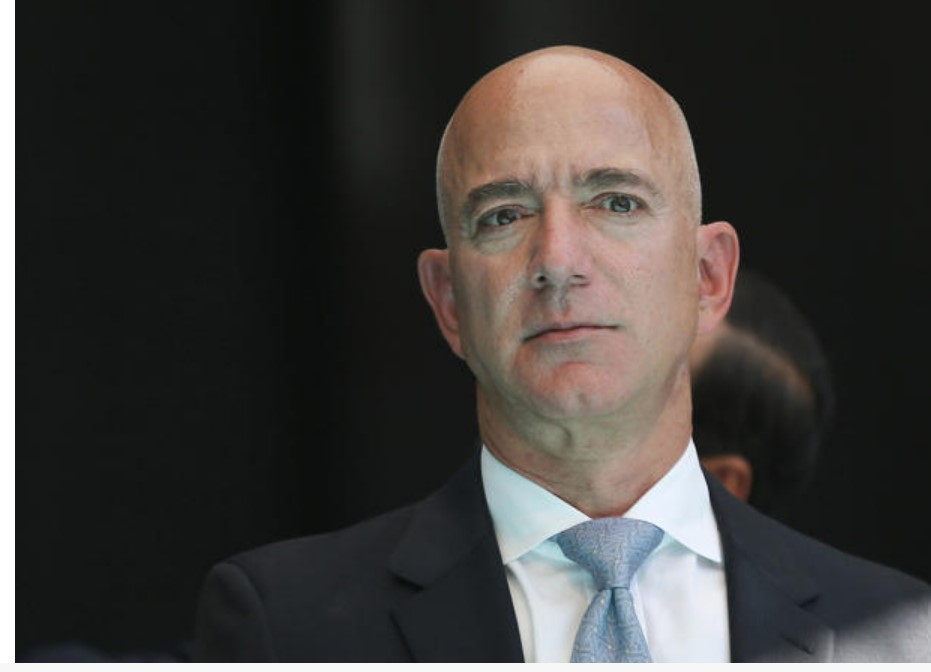
Elle Hardy — Business Insider — After he predicted that ecommerce was about to take off, Bezos founded Amazon as an online book retailer in 1994. A pioneer of aggressive digital growth and focus on total customer satisfaction, “the everything store” under Bezos’ guidance has become one of the highest-valued companies in the world in terms of market capitalization, revenue, and brand. Amazon’s rise left several early internet competitors in the dust. In the company’s first post-IPO shareholder letter, Bezos mentioned strategic partnerships with several peers like America Online, Prodigy, and Yahoo that have either gone out of business entirely or been purchased by competitors in the years since. Bezos stepped down from his role as CEO and president of Amazon in late 2021, but still remains the owner of aerospace company Blue Origin as well as the newspaper The Washington Post. His net worth is estimated at around $122 billion.
So how do you go from zero to richest man in the world? Experts believe that his distinct leadership style has a lot to do with it. Amazon famously has 14 leadership principles that form the backbone of the company and its decision-making, including “customer obsession,” “invent and simplify,” “bias for action,” and “have backbone; disagree and commit,” among others. These values highlight Bezos’ belief that a strong set of principles goes a long way to achieving success, and leaders need to be held accountable to high standards.
Fast forward app building – The fastest way to build apps In a letter to shareholders back in 1998, he said that “setting the bar high in our approach to hiring has been, and will continue to be, the single most important element of Amazon.com’s success.” According to the man himself, the value that “surprises people” is Amazon’s fourth leadership principle: “are right, a lot.” “Good leaders are right a lot,” Bezos said at the 2016 Pathfinder Awards in Seattle. “You’re not going to be right all the time, but I think with practice you can be right more often.”
Courage, curiosity, and putting the customer first
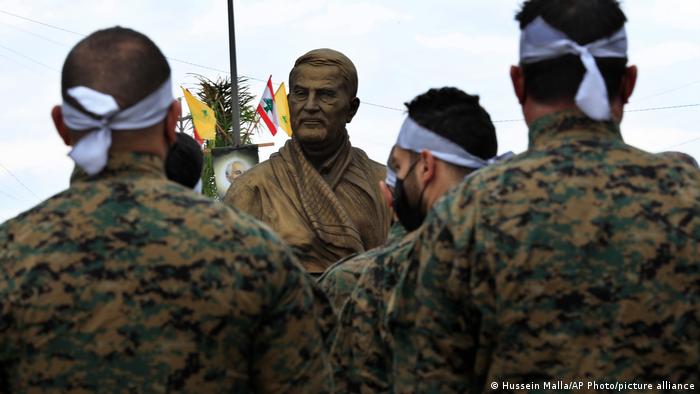
By Najia Houssari — arabnews.com — BEIRUT: Unidentified persons hurled a Molotov cocktail at the NewTV station building in Beirut Tuesday morning. Security forces are currently inspecting the station’s surveillance cameras and looking into the incident to prosecute the perpetrators. About a week ago, NewTV broadcast a satirical clip within a weekly political show. The clip referenced the attack on the UNIFIL vehicle in southern Lebanon and the death of an Irish peacekeeper. Hezbollah supporters took offense at the clip and launched a fierce online campaign against NewTV, the station’s news editor Maryam Al-Bassam, the show’s host Dalia Ahmed and comedian Joanna Karaki.
Jawad Hassan Nasrallah, son of Hezbollah’s secretary-general, participated in the campaign. Karaki, who played a southern Lebanese woman, said in the clip that “when the UNIFIL peacekeepers first came to southern Lebanon, they took Lebanese wives, so the majority of southerners now have blue or green eyes with blond hair, with some who look more Italian and British than Lebanese,” referring to intermarriage between residents and peacekeepers operating in the south since 1978. Hezbollah supporters said this clip offends the honor of women in the south of Lebanon. Karaki refused to apologize for what she said, stressing that she is also from the south and is not accusing the women there of doing anything wrong. The incident escalated into a sectarian crisis with the intervention of the Supreme Islamic Shiite Council, which denounced “slander, misinformation and defamation targeting the Shiite Islamic community…under the guise of satirical shows.”
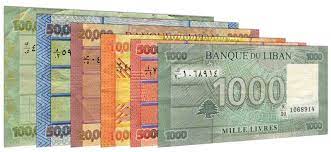
By NAJIA HOUSSARI — arabnews.com — BEIRUT: A Lebanese MP has called for action against smugglers who are worsening the economic crises by smuggling already scarce US dollars out of the country to Syria. Hadi Abu Al-Hassan said the smugglers, who are capitalizing on the weak Lebanese pound, were worsening the availability of hard currency and causing “insane” rises in exchange rates. He said that “well-known gangs buy dollars from the local market in frightening quantities and smuggle them into Syria,” and added that the official and black market exchange rates had “risen insanely and without controls” as a consequence. “The bag changers who are present at night on the road to the Al-Masnaa border point are known by name and their destination is Syria. Why do the judiciary and security services not act?
Are these money changers even licensed in the first place?” His comments came as the central bank blamed a sharp devaluation of the Lebanese pound since Christmas on currency speculation and smuggling. The bank devalued the pound to 38,000 to the dollar on Tuesday on the official Sayrafa exchange platform, after it soared to more than 47,000 pounds on the parallel market and at exchange houses.
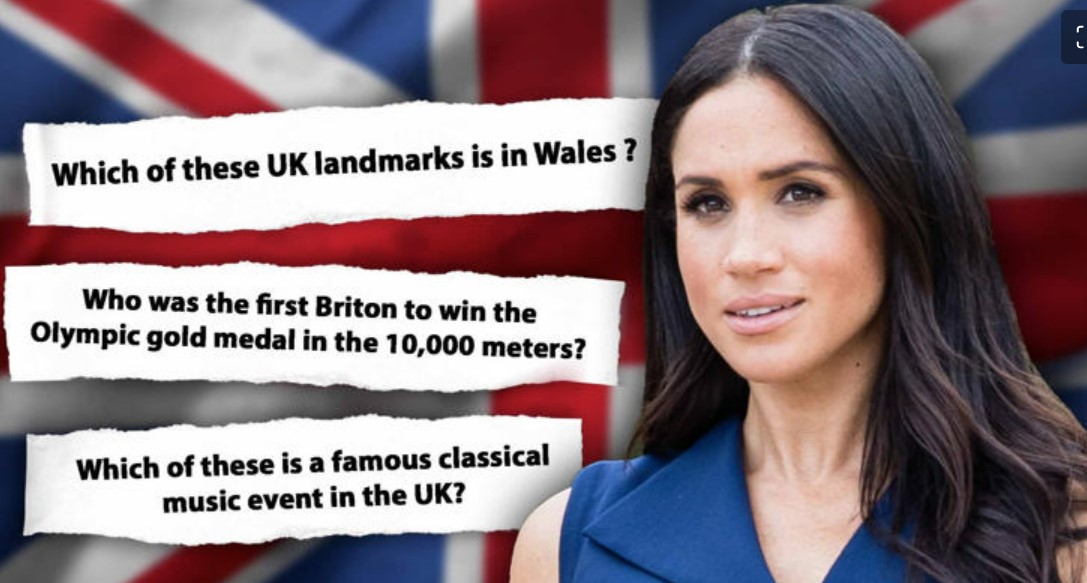
Story by Gergana Krasteva — metro.com — The Life in the UK test may look like your average pub quiz – but instead of a bottle of wine, you are awarded with a citizenship if you pass it. ‘Who built the Tower of London?’, or ‘What did the Chartists campaign for?’, these are just some of the example questions applicants will need to know the answers of, even though, according to Meghan Markle, even Prince Harry struggled with them. Almost 200,000 immigrants took the test in 2022 as part of their applications for citizenship or settlement. According to Home Office figures obtained by Metro.co.uk, more than a third of them failed to reach the minimum score of 75%. The test is intended to prove applicants have ‘sufficient knowledge’ of British life, but those who have been through it described the questions asked as ‘irrelevant’ and ‘outdated’. Hassan Akkad, a BAFTA and Emmy-winning director and producer behind Netflix’s film The Swimmers, arrived in the country as a refugee from Syria in 2015.
After completing the test a year ago, he told us that most of the questions do not prove the level of integration into everyday British life. ‘I am all for testing people who want to live in the UK,’ he stressed. ‘The language test is essential – everyone who wants a citizenship should be able to speak English. Otherwise, they will not have a voice in this society. ‘But the Life in the UK test should test things from everyday life, like for example, how to file taxes, or how to register to vote, or how to register your car. ‘I am not too keen on the historical questions, asking me how many wives Henry VIII had. ‘How is that going to prove the level of integration into everyday British life?’ The test itself costs £50, and cannot to be done in-person, forcing all applicants to also pay for transportation to one of the 30 centres in the country. ‘Did I learn anything useful? No. Literally nothing. Do I think that the government is making big money out of this? Yes,’ he said.

By Sharon Goldman — venturebeat.com — These are the 5 biggest AI stories I’m waiting for:
1. GPT-4
ChatGPT is so 2022, don’t you think? The hype around OpenAI’s chatbot “research preview,” released on November 30, has barely peaked, but the noisy speculation around what’s coming next — GPT-4 — is like the sound of millions of Swifties waiting for Taylor’s next album to drop. If expert predictions and OpenAI’s cryptic tweets are correct, early to mid-2023 will be when GPT-4 — with more parameters and trained on more data — makes its debut and “minds will be blown.” It will still be filled with the untrustworthy “plausible BS” of ChatGPT and GPT-3, but it will possibly be multi-modal — able to work with images, text and other data. It has been less than three years since GPT-3 was released, and only two since the first DALL-E research paper was published. When it comes to the pace of innovation for large language models in 2023, many are saying “buckle up.”
2. The EU AI Act
AI technology may be rapidly advancing, but so is AI regulation. While a variety of state-based AI-related bills have been passed in the U.S., it is larger government regulation — in the form of the EU AI Act — that everyone is waiting for. On December 6, the EU AI Act progressed one step towards becoming law then the Council of the EU adopted its amendments to the draft act, opening the door for the European Parliament to “finalize their common position.” The EU AI Act, according to Avi Gesser, partner at Debevoise & Plimpton and co-chair of the firm’s Cybersecurity, Privacy and Artificial Intelligence Practice Group, is attempting to put together a risk-based regime to address the highest-risk outcomes of artificial intelligence. As with the GDPR, it will be an example of a comprehensive European law coming into effect and slowly trickling into various state and sector-specific laws in the U.S., he recently told VentureBeat. Boston Consulting Group calls the EU AI Act “one of the first broad-ranging regulatory frameworks on AI” and expects it to be enacted into law in 2023. Since it will apply whenever business is done with any EU citizen, regardless of location, this will likely affect nearly every enterprise.
3. The battle for search
Last week, the New York Times called ChatGPT a “code red” for Google’s search business. And in mid-December, You.com announced it had opened up its search platform to generative AI apps. Then, on Christmas Eve, You.com debuted YouChat, which it called “Conversational AI with citations and real-time data, right in your search bar.” To me, this all adds up to what could be a real battle for the future of search in 2023 — I’m already munching on popcorn waiting for Google’s next move. As I wrote recently, Google handles billions of searches every single day — so it isn’t going anywhere anytime soon. But perhaps ChatGPT — and even You.com — is just the beginning of new, imaginative thinking around the future of AI and search. And as Alex Kantrowitz told Axios recently, Google may have to make a move: “It’s game time for Google,” he said. “I don’t think it can sit on the sidelines for too long.”
4. Open source vs closed AI
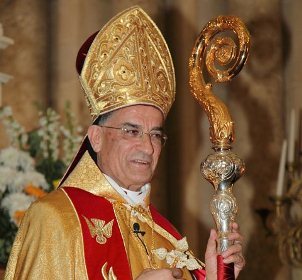
By Najia Houssari — BEIRUT: Maronite Patriarch Bechara Al-Rahi has called on Lebanese politicians to help play their part in the election of a new president following 10 failed attempts. He appealed to politicians to stop impeding the process and to help create a situation in which the state’s institutions can resume work to help address the country’s economic crisis. MPs have held 10 failed sessions to elect a president, with Hezbollah and its allies casting blank votes and repeatedly withdrawing from the second round of voting, resulting in a loss of quorum. Al-Rahi said: “Arrogance is stopping the politicians from holding a dialogue to overcome the presidential election crisis, while the wailing of the hungry and grieving people does not reach the ears of their heart and conscience.” Maronite Patriarch Bechara Al-Rahi says he wants an international conference to help resolve the problems in Lebanon, under the auspices of the UN and friendly countries. Al-Rahi, who added that some politicians seemed unconcerned about citizens’ suffering, was speaking at Sunday Mass in Bkirki.
His appeal came as Christmas was observed with midnight Masses and Sunday morning services amid strict security measures undertaken by the military and security forces. Al-Rahi asked in his sermon: “How could they forget the face of mercy revealed to us at Christmas?” The presidential deadlock was also referenced by other religious figures. Armenian Catholic Patriarch Raphael Bedros XXI Minassian said: “We have spent the money of our parents and children and we have left them in a deep hole.” While delivering his own speech, Al-Rahi was moved to the point of crying when stressing the plight of Lebanon’s people. He said the value of the country’s currency was plummeting, and yet no one batted an eyelid. He added that the investigation into the Beirut port blast awaited the judiciary, and the judiciary was awaiting the end of political and sectarian conflicts. He added: “In Lebanese prisons, there are unsentenced prisoners from all religious sects, and in courts there are cases that have been accumulating for two years. The judiciary is on strike and the politicians are not concerned.”
Will 2023 be the year we finally break free from the 9-to-5 workday? Signs point to yes. Nonlinear workdays are gaining steam among tech startups, and the results are promising: London School of Economics professor Laura Giurge says asynchronous work “helps us move away from focusing on inputs as a measure of performance to focusing […]
Florida was the fastest-growing state in 2022, United States Census Bureau data reveals. The Sunshine State’s population rose 1.9%, to 22.2 million, outpacing second-place Idaho (1.8%) and third-place South Carolina (1.7%). Florida topped the list for the first time since 1957. Since 1946, the population in Florida has grown more than nine times. As impressive […]
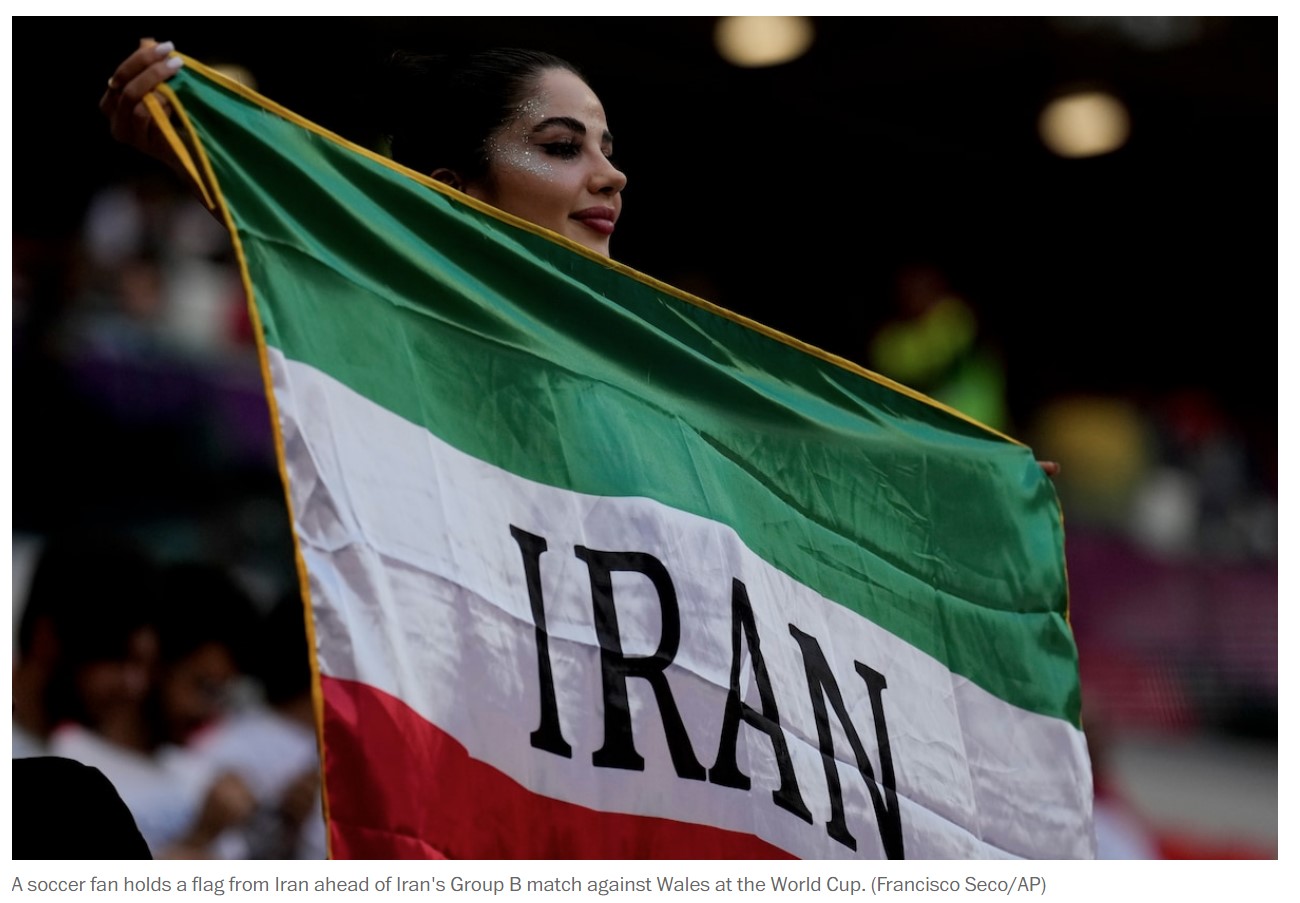
By BBC News — A leading human rights activist in Iran has written from prison to give the BBC details of how women detained in recent anti-government protests are being sexually and physically abused. Narges Mohammadi said such assaults had become more common in recent protests. She is serving a lengthy sentence in Tehran’s notorious Evin prison. The protests were triggered by the death in custody in September of 22-year-old Mahsa Amini, arrested for violating strict dress codes. She was detained by morality police in mid-September for allegedly wearing her hijab, or headscarf, “improperly”. More than 500 protesters, including 69 children, have been killed, while thousands of others have been arrested, human rights activists say. Dozens of Iranian security personnel are also reported to have been killed. Many of those arrested have allegedly been subjected to torture and other ill-treatment in custody.
Identifying those killed in Iran’s protests Ms Mohammadi is deputy head of Nobel laureate Shirin Ebadi’s Defenders of Human Rights Center. She has received several jail sentences since 2011 and is currently in prison for “spreading propaganda”. This year she was also included in the BBC’s 100 Women – a high profile list of 100 inspiring and influential women from around the world.



